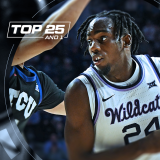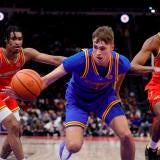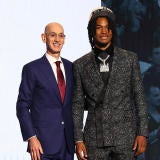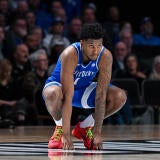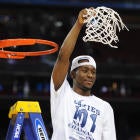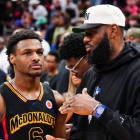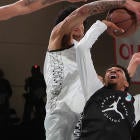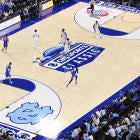Pool reporters cannot directly question game officials on site following NCAA tournament games due to a change in policy by the NCAA basketball committee.
The committee decided that all post-game officiating questions now will be filtered off site through coordinator of officials John Adams. It ends a long-standing policy of a media member or members -- a pool reporter representing the media -- being able to question officials following a game.
A pool reporter is rarely used, and only in the case of rules of interpretations or controversial plays. (Examples: fight, flagrant foul, timing issue.) Previously, a pool reporter would make a request after a game, then be escorted by an NCAA staffer to the officials’ locker room to ask pertinent questions. The pool reporter's quotes from the officials would then be distributed to the media.
The new policy requires up to six steps by the time information is disseminated to the media.
The policy change was made last summer due to some “flaws” in the process, according to an NCAA spokesman. Some officials refused to speak to media, said NCAA associate director of Division I basketball Dave Worlock in an email. Also, in rare occasions, a pool reporter “chased down” officials as they left the floor, Worlock added.
The policy’s effectiveness will be monitored this year, he said.
According to this flow chart obtained by CBSSports.com, if an “interpretation” cannot be answered by a playing rule it is part of the six-step process that includes a phone call involving the pool reporter, the on-site NCAA committee member, an NCAA staff member and Adams.
The United States Basketball Writers Association (USBWA) was told about the change. The NCAA said consideration would be made for deadlines regarding evening session games. Two pool reporters work the play-in, round of 64 and second-round games. A single pool reporter works the regionals.




